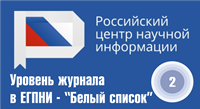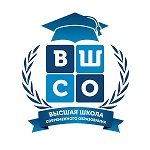Онтология проблемы профессиональной компетентности будущих учителей иностранных языков в Индии
Аннотация
Обоснование. Проблема профессиональной компетентности будущих учителей иностранных языков в Индии является сложной и многогранной. Она затрагивает не только вопросы лингвистической подготовки, но и социальные, культурные и экономические аспекты образовательной системы страны. В онтологическом смысле эта проблема связана с самим понятием профессиональной компетентности, которое подразумевает не просто владение языком, но и комплекс знаний, умений и качеств, необходимых для успешного выполнения педагогической деятельности. В контексте Индии, где многоязычие является нормой, а английский язык играет особую роль в образовании и социальной мобильности, вопрос о компетентности приобретает еще большую актуальность.
Национальная образовательная политика Индии все больше уделяет внимание подготовке учителей иностранных языков. Однако существуют определенные вызовы, которые необходимо преодолеть: острая нехватка преподавателей в области методики преподавания иностранных языков, отсутствие единых критериев и процедуры оценки профессиональной компетентности.
Цель – определение и изучение сущности и факторов указаной проблемы в индийском и отечественном научно-образовательном дискурсе.
Материалы и методы. В рамках настоящего исследования для достижения поставленной цели была применена совокупность теоретических методов: анализ, синтез, абстрагирование, обобщение, интеграция и классификация. Использование сравнительного анализа позволило выявить ключевые характеристики объекта исследования. В качестве основы исследования послужили научные публикации, посвященные данной тематике, а также нормативно-правовая база.
Результаты. Формирование современного профиля компетентности учителей иностранных языков в Индии в значительной степени обусловлено Национальной образовательной политикой (NEP), утвержденной в 2020 году.
Требования к квалификации педагогов варьируются в зависимости от уровня образования. На начальном и подготовительном этапах обучения акцент делается на развитии устной коммуникации учащихся на иностранном языке. К концу среднего образования ожидается формирование навыков чтения и письма. В старшей школе учитель должен обеспечить достижение учащимися уровня эффективного общения, включающего рассуждения и аргументацию, как в устной, так и в письменной форме. Несмотря на это, система образования Индии сталкивается с рядом вызовов: перегруженность классов, дефицит кадров, чрезмерная административная нагрузка, приоритет письменной коммуникации, отсутствие унифицированной политики в отношении иностранных языков со стороны образовательных советов различных штатов, недостаточное внимание к лингвокультурному аспекту в подготовке учителей в ряде педагогических вузов.
EDN: YCRACZ
*Редакция и автор уведомляют, что 5 июня 2025 г. Генеральная прокуратура РФ внесла The British Council (Британский совет) в список нежелательных организаций.
Скачивания
Литература
Губина, М. А. (2023). Реформа школьного образования в Индии 2020 г.: экономические предпосылки и задачи. Вестн. РУДН. Сер. Экономика, 31(4), 760–778. https://doi.org/10.22363/2313-2329-2023-31-4-760-778 EDN: https://elibrary.ru/SGZQRQ
Демченко, М. Б. (2021). Антропологический подход к преподаванию иностранных языков. Вестн. Моск. гос. лингвист. ун-та. Образование и педагогические науки, (2), 81–91. https://doi.org/10.52070/2500-3488_2021_2_839_81 EDN: https://elibrary.ru/SNFYOJ
Дмитриева, Н. К. (2023). Совершенствование профессиональной компетенции преподавателя иностранного языка в условиях модифицированного «иммерсионного обучения». Проблемы современного педагогического образования, (80-1), 119–121.
Ерохин, А. К. (2007). Толерантность как идеал образования в философии Рабиндраната Тагора. Ойкумена. Регионоведческие исследования, (2), 16–25.
Исмаилова, Н. О. Қ. (2023). Применение индийского опыта преподавания английского языка в образовательном процессе Узбекистана. Наука и образование сегодня, (1), 28–34.
Пантыкина, Н. И. (2018). Инновационные практики преподавания иностранных языков на опыте зарубежных исследователей. Вестн. Череповец. гос. ун-та, (1), 145–148. https://doi.org/10.23859/1994-0637-2018-1-82-20 EDN: https://elibrary.ru/YPMALE
Рягузова, Е. В., & Черняева, Т. И. (2023). Смысловые коды современной профессии "учитель": инварианты и инновации. Изв. Сарат. ун-та. Нов. сер. Сер. Философия. Психология. Педагогика, (2), 203–210. https://doi.org/10.18500/1819-7671-2023-23-2-203-210 EDN: https://elibrary.ru/LIDFXI
Тоджибаева, К. С. К. (2018). Профессиональная педагогическая компетентность учителя: феноменология понятия. Вопр. науки и образования, (27), 95–97.
Anderson, J. (2022). Learning from Indian teacher expertise: A policy and practice report for educational organisations in India. Economic and Social Research Council. 18 p. https://doi.org/10.13140/RG.2.2.21551.61609
Balwaria, R., & Gawarikar, V. (2023). Teacher Education in India: Teaching competencies for developing 21st-century skills. Chapter-13. P. 147–158. Получено с https://www.researchgate.net/publication/373872910_Teacher_Education_in_India_Chapter-13_Teaching_competencies_for_Developing_21_st_Century_skills (дата обращения: 7 января 2024 г.).
Brahme, M. (2020). Foreign Language Studies in India: Some Critical Observations. Language and Language Teaching, 68–74. https://doi.org/10.4018/979-8-3693-5738-5.ch013
Evangeline, B., & Konobiev, A. (2022). Professional Competencies of Teachers of Foreign Languages. Professional Discourse & Communication, 4(4), 42–52. https://doi.org/10.24833/2687-0126-2022-4-4-42-52 EDN: https://elibrary.ru/JUQNSF
Kapur, R. (2018). Issues and Problems of Teacher Education. Получено с https://www.researchgate.net/publication/329745226_Issues_and_Problems_of_Teacher_Education (дата обращения: 18 октября 2021 г.).
Mandavkar, P. (2023). Role of Languages in National Education System of India. SSRN Electronic Journal, 6 p. https://doi.org/10.2139/ssrn.4609001
Mondal, A., & Baidya, M. N. (2024). Future Teacher Education in India. The Social Sciences Review, 2(2), 38–44. Получено с https://tssreview.in/wp-content/uploads/2024/03/4-3.pdf (дата обращения: 28 января 2025 г.).
National Education Policy (2020). Ministry of Human Resource Development Government of India. Получено с https://www.education.gov.in/sites/upload_files/mhrd/files/NEP_Final_English_0.pdf (дата обращения: 9 января 2025 г.).
Rani, A. (2017). Problems and Solution of Teacher Education. International Journal of Academic Research in Education and Review, 5(1), 15–19. https://doi.org/10.14662/IJARER2017.002
Singh, A., & H. B. A. Halim. (2023). Addressing Challenges in Language Teaching in India: Exploring the Role of Corrective Feedback in Enhancing Learning. Advanced Education, 10(22), 152–184. https://doi.org/10.20535/2410-8286.278042 EDN: https://elibrary.ru/ZQZZEH
References
Gubina, M. A. (2023). Reform of school education in India 2020: economic prerequisites and objectives. RUDN Journal of Economics, 31(4), 760–778. https://doi.org/10.22363/2313-2329-2023-31-4-760-778 EDN: https://elibrary.ru/SGZQRQ
Demchenko, M. B. (2021). Anthropological approach to teaching foreign languages. Vestnik of Moscow State Linguistic University. Education and Pedagogical Sciences, (2), 81–91. https://doi.org/10.52070/2500-3488_2021_2_839_81 EDN: https://elibrary.ru/SNFYOJ
Dmitrieva, N. K. (2023). Improving the professional competence of a foreign language teacher in the context of modified "immersive learning". Problems of Modern Pedagogical Education, (80-1), 119–121.
Erokhin, A. K. (2007). Tolerance as an ideal of education in the philosophy of Rabindranath Tagore. Oikoumena. Regional Studies, (2), 16–25.
Ismailova, N. O. Q. (2023). Application of the Indian experience of teaching English in the educational process of Uzbekistan. Science and Education Today, (1), 28–34.
Pantykina, N. I. (2018). Innovative practices of teaching foreign languages based on the experience of foreign researchers. Vestnik of Cherepovets State University, (1), 145–148. https://doi.org/10.23859/1994-0637-2018-1-82-20 EDN: https://elibrary.ru/YPMALE
Ryaguzova, E. V., & Chernyaeva, T. I. (2023). Meaningful codes of the modern profession "teacher": invariants and innovations. Izvestiya of Saratov University. New Series. Series: Philosophy. Psychology. Pedagogy, (2), 203–210. https://doi.org/10.18500/1819-7671-2023-23-2-203-210 EDN: https://elibrary.ru/LIDFXI
Tozhibaeva, K. S. K. (2018). Professional pedagogical competence of a teacher: the phenomenology of the concept. Questions of Science and Education, (27), 95–97.
Anderson, J. (2022). Learning from Indian teacher expertise: A policy and practice report for educational organisations in India. Economic and Social Research Council. 18 p. https://doi.org/10.13140/RG.2.2.21551.61609
Balwaria, R., & Gawarikar, V. (2023). Teacher Education in India: Teaching competencies for developing 21st-century skills. Chapter-13. P. 147–158. Retrieved from https://www.researchgate.net/publication/373872910_Teacher_Education_in_India_Chapter-13_Teaching_competencies_for_Developing_21_st_Century_skills (accessed: January 7, 2024).
Brahme, M. (2020). Foreign Language Studies in India: Some Critical Observations. Language and Language Teaching, 68–74. https://doi.org/10.4018/979-8-3693-5738-5.ch013
Evangeline, B., & Konobiev, A. (2022). Professional Competencies of Teachers of Foreign Languages. Professional Discourse & Communication, 4(4), 42–52. https://doi.org/10.24833/2687-0126-2022-4-4-42-52 EDN: https://elibrary.ru/JUQNSF
Kapur, R. (2018). Issues and Problems of Teacher Education. Retrieved from https://www.researchgate.net/publication/329745226_Issues_and_Problems_of_Teacher_Education (accessed: October 18, 2021).
Mandavkar, P. (2023). Role of Languages in National Education System of India. SSRN Electronic Journal, 6 p. https://doi.org/10.2139/ssrn.4609001
Mondal, A., & Baidya, M. N. (2024). Future Teacher Education in India. The Social Sciences Review, 2(2), 38–44. Retrieved from https://tssreview.in/wp-content/uploads/2024/03/4-3.pdf (accessed: January 28, 2025).
National Education Policy (2020). Ministry of Human Resource Development Government of India. Retrieved from https://www.education.gov.in/sites/upload_files/mhrd/files/NEP_Final_English_0.pdf (accessed: January 9, 2025).
Rani, A. (2017). Problems and Solution of Teacher Education. International Journal of Academic Research in Education and Review, 5(1), 15–19. https://doi.org/10.14662/IJARER2017.002
Singh, A., & H. B. A. Halim. (2023). Addressing Challenges in Language Teaching in India: Exploring the Role of Corrective Feedback in Enhancing Learning. Advanced Education, 10(22), 152–184. https://doi.org/10.20535/2410-8286.278042 EDN: https://elibrary.ru/ZQZZEH
Copyright (c) 2025 Lina E. Belovetskaia

Это произведение доступно по лицензии Creative Commons «Attribution-NonCommercial-NoDerivatives» («Атрибуция — Некоммерческое использование — Без производных произведений») 4.0 Всемирная.





































